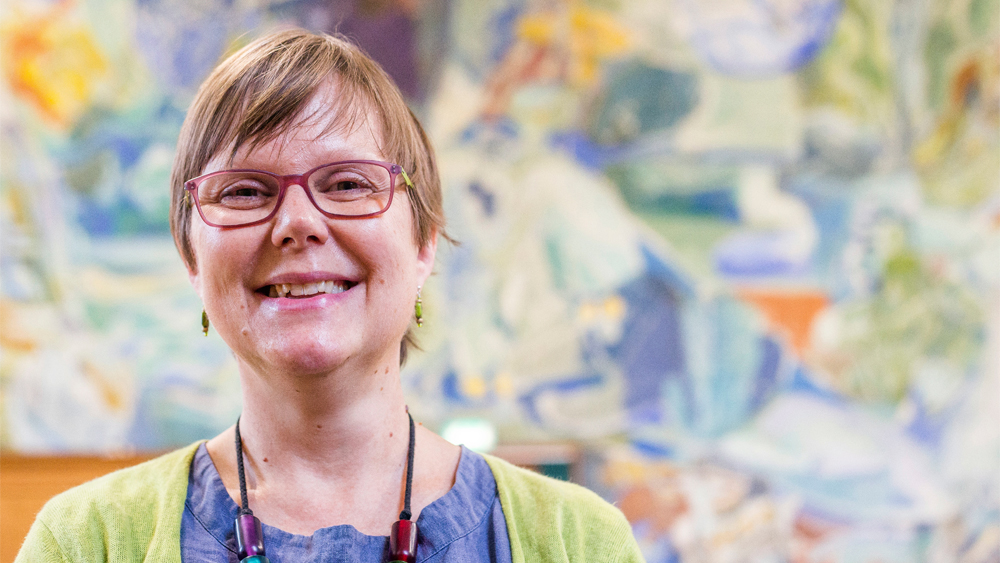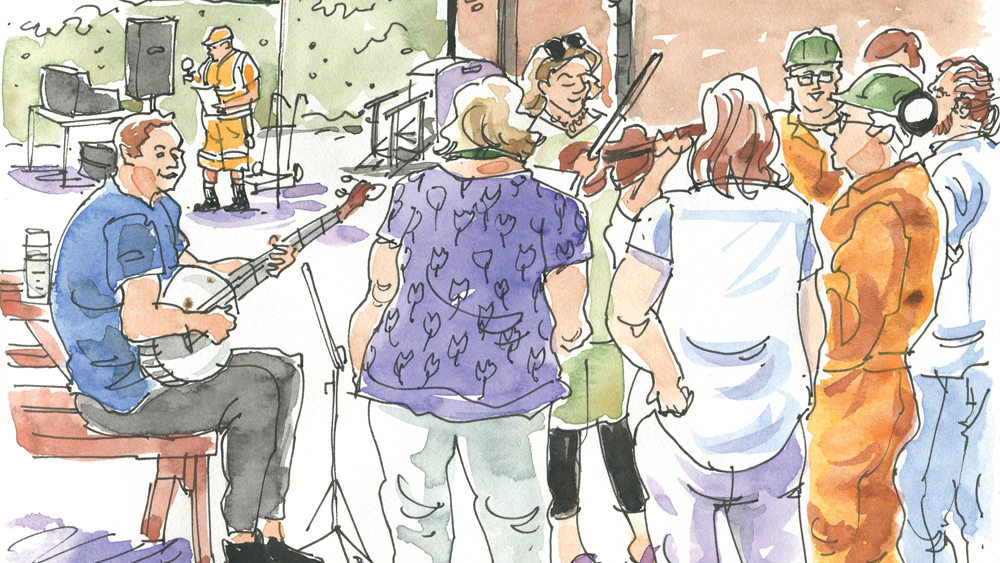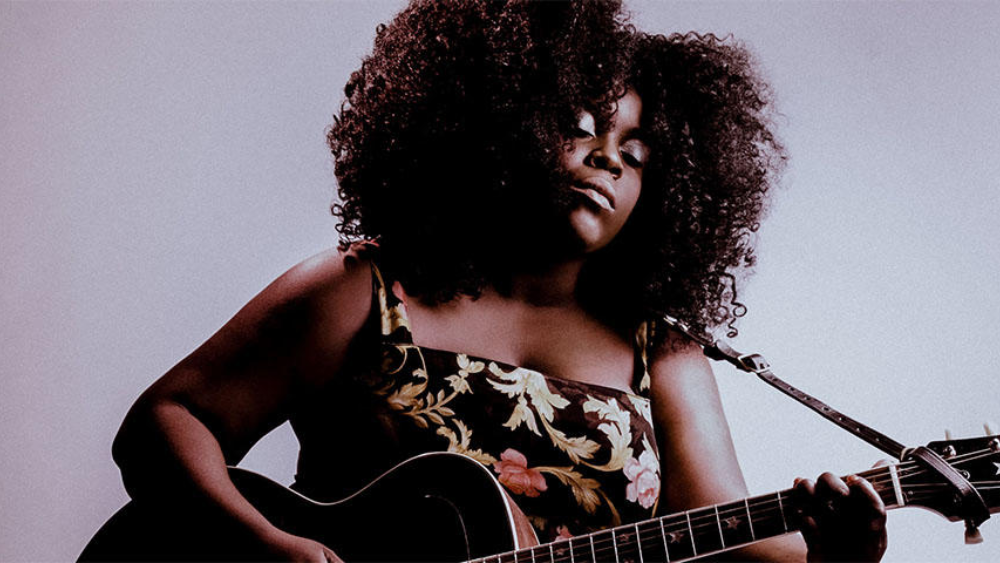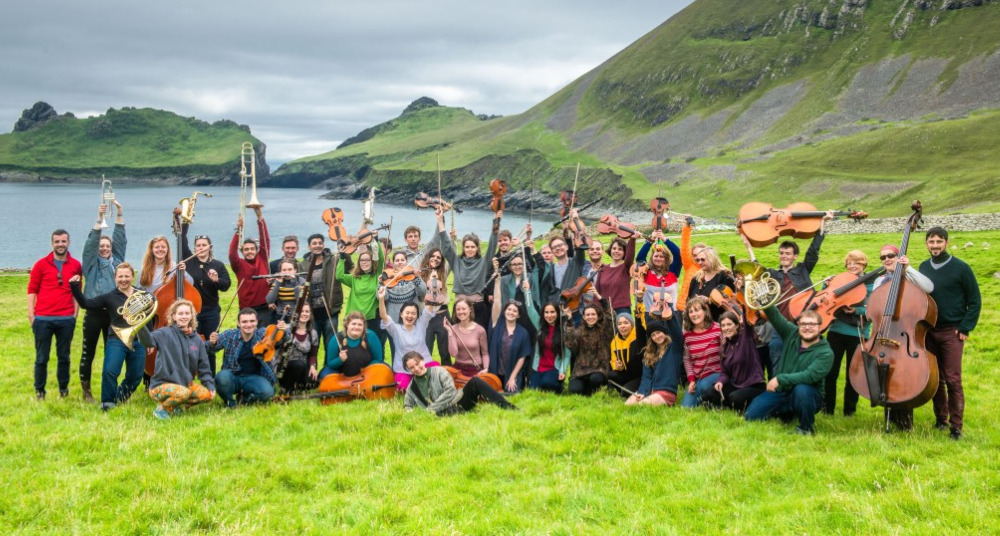Trying to make your way in the UK’s folk scene? Katy Spicer is on hand with some sage advice…
The English Folk Dance and Song Society (EFDSS) is the lead development organisation for the folk arts and has been operating for nearly ninety years.
Its aims are to preserve, promote and develop the folk arts, particular dance and music, by developing and delivering activities at EFDSS’ arts venue in Camden, Cecil Sharp House (CSH), across England, and sometimes beyond.
EFDSS runs programmes to support artists at all stages of their careers alongside a professional music programme at CSH.
The Artists’ Development Programme focuses on creative development through programmes of residencies, bursaries and commissions, and development of performance opportunities through showcases at CSH, with festivals around England, and through English Folk Expo (EFEx), the annual showcase of English folk, roots and acoustic music, of which EFDSS is a founding and current partner.
Over the past 10 years EFDSS has supported over 2500 artists through its development programmes, and is now working with its youth programmes to create the pathways into a professional folk music career for young artists.
Katy Spicer is the chief executive and artistic director of the EFDSS, who joined the organisation in 2008 having previously worked in dance and theatre management.
She revived the performance programme in 2009 and introduced an artists’ development programme at the same time. Here she gives her top tips for new and emerging folk artists...
Getting started…
There is no magic formula to developing a music career in folk and traditional music or any other music genre, but if you do your research and have a plan that will help enormously to get your foot on the ladder.
Learn about the folk sector – venues, festivals, agents, labels – who does what, who programmes what, and who can give you support and guidance. The internet is a wonderful place to find out the venues and festivals artists are performing at, what ticket prices are being charged, who are the music agents working with folk music, and generally what is going on in the sector.
Have a plan – short, medium and long term…
Think how you are going to get those gigs and make those contacts. Perhaps start with folk clubs, festivals and other venues in your area. Look at their programmes and the type and range of music artists they are booking. Go and watch a one of their gigs to see if you you like the atmosphere and can find out who books the artists.
If you have a limited track record as a performer then look for clubs that do open mic or open floor spots so that you can get some live performance experience. Once at a stage where you feel you should be paid to perform then work out your costs (travel, accommodation, equipment hire).
What is the minimum amount you need to cover such costs and how much would you like to earn as a fee over and above those costs? Remember it might not be possible to command such a price at the beginning so you will have to decide how much of a compromise on fee you are able to make.
Developing you gig opportunities in your local area will enable you to keep costs low and so receive some income for your performance. It will also help you to develop an audience and once you have a following you can ask venues for more money.
Have a longer-term plan: where do you want to be in five years or even 10 years? Then consider the steps you will need to take to get there.
I once mentored a young choreographer, just starting out on his career. He amazed me by knowing that he wanted to create three shows over five years, each one being on a larger–scale than the previous; I honestly thought he was overly ambitious but he proved me wrong, delivered all three shows as he has described them to me and is now a highly sought after choreographer.
Advice and support…
People are very generous with their time and advice so don’t be afraid to ask. Whether that be funding organisations like PRS Foundation or Arts Council England, or promoters, programmers and agents, other artists or folk music specific organisations such as EFDSS.
Look out for training and funding opportunities. Training opportunities might be more general around business or financial management or specific to the arts. Such training will be relevant to whatever arts sector you are in, it doesn’t have to be specific to music or folk music. And it may be available from banks, local enterprise schemes as well as arts organisations and arts charities.
EFDSS has a free artists’ newsletter in which we aim to flag up opportunities from all sorts of organisations, not just ours, which offer funding, training and creative opportunities.
The English Folk Dance and Song Society (EFDSS) is the lead development organisation for the folk arts and has been operating for nearly ninety years.
Its aims are to preserve, promote and develop the folk arts, particular dance and music, by developing and delivering activities at EFDSS’ arts venue in Camden, Cecil Sharp House (CSH), across England, and sometimes beyond.
EFDSS runs programmes to support artists at all stages of their careers alongside a professional music programme at CSH.
The Artists’ Development Programme focuses on creative development through programmes of residencies, bursaries and commissions, and development of performance opportunities through showcases at CSH, with festivals around England, and through English Folk Expo (EFEx), the annual showcase of English folk, roots and acoustic music, of which EFDSS is a founding and current partner.
Over the past 10 years EFDSS has supported over 2500 artists through its development programmes, and is now working with its youth programmes to create the pathways into a professional folk music career for young artists.
Katy Spicer is the chief executive and artistic director of the EFDSS, who joined the organisation in 2008 having previously worked in dance and theatre management.
She revived the performance programme in 2009 and introduced an artists’ development programme at the same time. Here she gives her top tips for new and emerging folk artists...
Getting started…
There is no magic formula to developing a music career in folk and traditional music or any other music genre, but if you do your research and have a plan that will help enormously to get your foot on the ladder.
Learn about the folk sector – venues, festivals, agents, labels – who does what, who programmes what, and who can give you support and guidance. The internet is a wonderful place to find out the venues and festivals artists are performing at, what ticket prices are being charged, who are the music agents working with folk music, and generally what is going on in the sector.
Have a plan – short, medium and long term…
Think how you are going to get those gigs and make those contacts. Perhaps start with folk clubs, festivals and other venues in your area. Look at their programmes and the type and range of music artists they are booking. Go and watch a one of their gigs to see if you you like the atmosphere and can find out who books the artists.
If you have a limited track record as a performer then look for clubs that do open mic or open floor spots so that you can get some live performance experience. Once at a stage where you feel you should be paid to perform then work out your costs (travel, accommodation, equipment hire).
What is the minimum amount you need to cover such costs and how much would you like to earn as a fee over and above those costs? Remember it might not be possible to command such a price at the beginning so you will have to decide how much of a compromise on fee you are able to make.
Developing you gig opportunities in your local area will enable you to keep costs low and so receive some income for your performance. It will also help you to develop an audience and once you have a following you can ask venues for more money.
Have a longer-term plan: where do you want to be in five years or even 10 years? Then consider the steps you will need to take to get there.
I once mentored a young choreographer, just starting out on his career. He amazed me by knowing that he wanted to create three shows over five years, each one being on a larger–scale than the previous; I honestly thought he was overly ambitious but he proved me wrong, delivered all three shows as he has described them to me and is now a highly sought after choreographer.
Advice and support…
People are very generous with their time and advice so don’t be afraid to ask. Whether that be funding organisations like PRS Foundation or Arts Council England, or promoters, programmers and agents, other artists or folk music specific organisations such as EFDSS.
Look out for training and funding opportunities. Training opportunities might be more general around business or financial management or specific to the arts. Such training will be relevant to whatever arts sector you are in, it doesn’t have to be specific to music or folk music. And it may be available from banks, local enterprise schemes as well as arts organisations and arts charities.
EFDSS has a free artists’ newsletter in which we aim to flag up opportunities from all sorts of organisations, not just ours, which offer funding, training and creative opportunities.

Katy Spicer (photo credit: Rosie Reed Gold)
Develop your practice…
Always find time for practice and rehearsal, and never stop learning.
Consider bench-marking your ability against your favourite artists. It’s a tough world out there and even in the niche area of folk there are 1000s of excellent artists. Are you as good as them? Can you be as good as them? What do you need to do?
Don’t be shy of continuing or starting lessons/coaching. If you have trained as an instrumentalist and would like to sing as well and play, think about voice coaching to help you find your tone and pitch and teach you techniques which will stop you straining your voice.
Remember that technical playing ability is only one part of the performance. Think about the presentation of your music and how you engage with your audiences. Folk songs usually have fascinating stories attached to them so that gives you something to talk to your audience about and develop you rapport (but don’t make the explanation longer than the song!).
Be clear and audible when you speak, and never apologise for your performance. I have heard way too many young artists apologise to audiences for having to listen to them – they’ve paid to listen to you so don’t make them doubt you. You’ll be playing in a lot of small, intimate venues so you need to make your audience feel relaxed and part of the evening’s experience.
Keep your eyes and ears wide open…
Be open to new ideas and all types of art forms, not just music. Go and see as much as you can; folk music, other music genres, dance, theatre, visual arts etc… Observe how other artists present themselves on stage and how they engage with their audiences; who are they collaborating with, what themes they writing about or being inspired by, you can learn so much from just watching and listening.
This can also provide you with creative ideas and possible artists you might want to collaborate with in the future.
Do your creative research. The Vaughan Williams Memorial Library at CSH is the home of the national collection of English (and other) folk materials. Here there is an endless source of inspirational material from which to develop your repertoire, whether you see yourself as a torch bearer of the tradition or are stretching the boundaries of folk music with your own compositions.
You are your best ambassador…
You’ve developed a bit of following, so now ensure you keep in touch with your audiences and bookers. Make sure you have sign-up sheets at gigs for people to join your mailing list and develop your online presence. Use it to keep engaged with your audiences between gigs. If you haven’t yet produced an EP or CD then at least try to put some good quality recordings online, but don’t make public poorly short videos with dodgy sound, that will do you more harm than good.
Always ensure your website is up-to-date, and that you are posting regularly about your gigs on Facebook, Twitter, Instagram and so on. Work with the venue/festival to publicise your gig, don’t expect them to do all the work.
Sole trader…
Remember, you may be a musician, but you are also a business and you need to approach your career in this way. Until such times as you can pay other people to manage your PR, online presence, finances and undertake your tour booking, you need to take all of these areas seriously and keep on top of them.
And finally, be nice…
Or as one artist put it when giving career advice to younger artists on an EFDSS development residency, “don’t be a dick!” Be courteous, considerate and professional. Artists who are polite and friendly to venue/festival staff will get more support and help than an artist who is rude and bolshie.
Don’t be a push-over either, if things are not as agreed, then you are quite right to point that out, but shouting is not going to solve anything. It is far better that you decide you don’t want to perform at a certain venue or festival again than for the programmer to decide that they don’t want to book you again.
(Drawing by Joe Bean: EFDSS Musicians in Museums project at the National Coal Mining Museum, Wakefield.)
EFDSS Artists’ Development programme varies from year to year but staples are our creative bursary programme which supports research and development into a creative idea that is rooted in the English folk arts and showcase performance opportunities at Cecil Sharp House and at two to three festivals in England.
Other opportunities will arise from year to year such as our current Musicians in Museums creative residency programme for experienced folk musicians. The best way to keep in touch with our opportunities, and opportunities from other organisations, is to join our free mailing list here.


.ashx)


